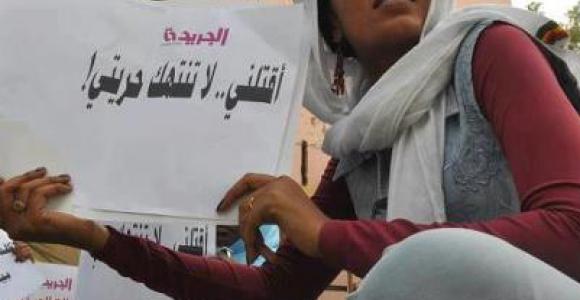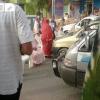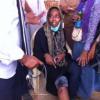In Sudan: Women Made Revolutions
Blog Post
On 16 June 2012, dozens of young women in Khartoum University’s dorms started chanting loudly, "No to High prices". As a result of the government’s austerity measures, the costs of meals and transportation became unbearable for female students. "The police cracked down on the dorms, fired tear gas, and beat us with batons", said M.H., a female student studying political science in Khartoum University. The demonstrations led by these young women inspired ongoing protests in Universities, which seek to mobilize residents of many Sudanese cities. Protests have been ongoing for more than 2 weeks. Sudan is revolting against Omar El-Bashir’s regime. Bashir has been Sudan’s dictator for the past 23 years and is a war criminal wanted by the International Criminal Court for crimes against humanity in Darfur, where rape was used as a weapon by his regime against Darfurian women. Rape is still being used by his militias and security forces against detained women activists.
The participation of Sudanese women in making change, especially their participation in Sudan’s revolutions, has been a staple in the country’s history, dating back to 1825-1885, the years of the Mahadi revolution against Turkish/ Egyptian rule in Sudan. Mehaira, in the north of Sudan, encouraged the tribal leaders to stand up and fight the Turkish Army. Mehaira was a poet, using her poems to encourage the leaders and army of her tribe to continue fighting and never surrender to their enemy. During the British colonization of Sudan (1898-1956), in the west of Sudan, specifically in the Nuba mountains, Mandy Ajbna carried the head of her father, a king who had been executed by the colonial army, for days through the Nuba mountains in order to convince 17 kings to unite their powers and fight back the British to protect their lands and free their people.
In modern history, Sudanese women were on the front lines, demanding independence from British rule. After independence, women worked for social change and started the fight to gain their rights. Fatima Ahmed Ibrahim, the head of the Sudanese Women Union, for example, led the demonstrations against the military rule of Ibrahim Abboud in the October 1964 uprising. Fatima and the Union were among the key reasons behind the success of Sudan’s first revolution as an independent country. The Sudanese Women Union mobilized women and turned them into a strong force that fueled the protests, taking to the streets in great numbers, and, as a result, gaining most of their rights. After the revolution, Fatima was the first Sudanese woman to be elected as a member of parliament. From her position, she fought for the women who participated in the revolution. By 1969, women gained their rights to political participation, and equality in education, work, and wages.
On April 1985, a revolution erupted against Jafa’ar Numeiri’s military regime (1969-1985), and women had gained more rights, serving as ministers, lawyers, doctors, and teachers. During the second revolution, women’s participation in political parties was significant, being active members in professional and workers’ unions, which led the protests and strikes until the fall of the regime.
Sudanese women led the demonstrations in the recent wave of protests this year; old women in Bahry, for example, blocking the streets with their bodies on 22 June.
Women in Sudan went a long way in gaining their rights; they are political parties leaders, advisors, and policy makers. In the Umma party, one of the oldest and most conservative political parties in Sudan, Sara Nogd Alla is serving as the party’s political secretary. Haqu movement is another example of a new political movement that is led by Hala Abd Alhaleim. Sudanese women are proving that they are strong and brave freedom fighters, community organizers, and mobilizers, as most of the youth groups and movements calling for regime change or to a democratic transformation in the past 2-4 years have been led by women. The effective civil society organizations and human rights NGOs are mostly led by women, or women are their main figures. Unfortunately, I cannot mention the names of these women even though I will always be very proud to know and to have worked with them. Women have never stopped struggling and fighting for their rights and the better future their country. All of these women were honored when Hawa Abdallah Mohammed, the Darfurian woman human rights defender, detained for months in 2011, won the 2012 International Women of Courage Award. Sudanese women are continuing their courageous struggle on the front lines of the protests, taking bullets and sniffing tear gas, but continuing to raise their voices, nonetheless, declaring: "Kill me... but don’t violate my freedom".




